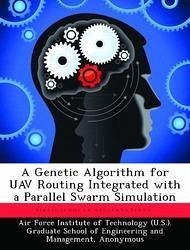
A Novel Communications Protocol Using Geographic Routing for Swarming Uavs Performing a Search Mission
Versandkostenfrei!
Versandfertig in über 4 Wochen
52,99 €
inkl. MwSt.

PAYBACK Punkte
26 °P sammeln!
This research develops the UAV Search Mission Protocol (USMP) for swarming UAVs and determines the protocol's effect on search mission performance. It is hypothesized that geographically routing USMP messages improves search performance by providing geography-dependent data to locations where it impacts search decisions. It is also proposed that the swarm can use data collected by the geographic routing protocol to accurately determine UAV locations and avoid sending explicit location updates. The hypothesis is tested by developing several USMP designs that are combined with the Greedy Perime...
This research develops the UAV Search Mission Protocol (USMP) for swarming UAVs and determines the protocol's effect on search mission performance. It is hypothesized that geographically routing USMP messages improves search performance by providing geography-dependent data to locations where it impacts search decisions. It is also proposed that the swarm can use data collected by the geographic routing protocol to accurately determine UAV locations and avoid sending explicit location updates. The hypothesis is tested by developing several USMP designs that are combined with the Greedy Perimeter Stateless Routing (GPSR) protocol and a search mission swarm logic into a single network simulation. The test designs use various transmission power levels, sensor types and swarm sizes. The simulation collects performance metrics for each scenario, including measures of distance traveled, UAV direction changes, number of searches and search concentration. USMP significantly improves mission performance over scenarios without inter-UAV communication. However, protocol designs that simply broadcast messages improve search performance by 83% in total searches and 20% in distance traveled compared to geographic routing candidates. Additionally, sending explicit location updates generates 3%-6% better performance per metric versus harvesting GPSR's location information.












